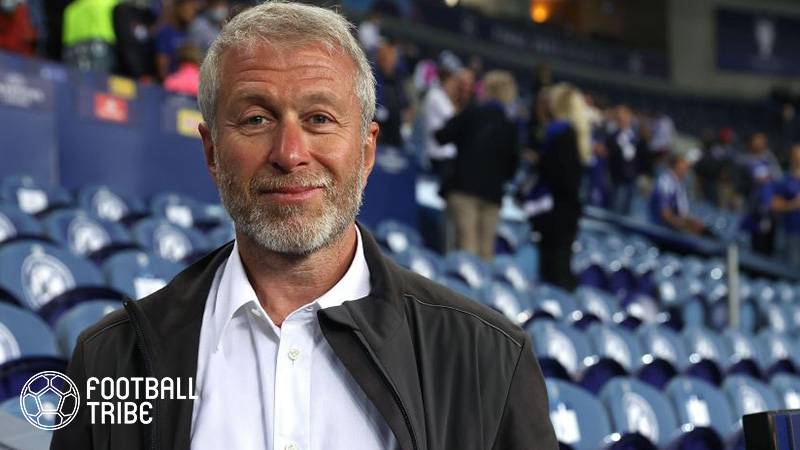
Heavily beleaguered Chelsea billionaire owner Roman Abramovich’s assets have been frozen by the UK government after being sanctioned for his close ties to Russia president Vladimir Putin.
Abramovich – one of eight Russian oligarchs who have had sanctions placed on them which will come into force before he’s able to push through a sale of Chelsea – had put the club up for sale last week after nearly 20 years of ownership.
To date, at least 20 parties have shown varying degrees of interest in buying Chelsea, valued by Abramovich at around £3bn, with the 55-year-old billionaire having earlier declared that proceeds from the sale would be donated to “all victims of the war in Ukraine.”
Unfortunately for the oligarch, a statement from British Prime Minister, Boris Johnson, on Thursday morning – who had called him a “pro-Kremlin oligarch” – declared action needed to be taken immediately against those who have supported the invasion of Ukraine, hence in effect slamming the brakes on a sale going through in the immediate future.
“There can be no safe havens for those who have supported Putin’s vicious assault on Ukraine,” Johnson said.
“Today’s sanctions are the latest step in the UK’s unwavering support for the Ukrainian people. We will be ruthless in pursuing those who enable the killing of civilians, destruction of hospitals and illegal occupation of sovereign allies.”
Liz Truss, the foreign secretary, added: “Today’s sanctions show once again that oligarchs and kleptocrats have no place in our economy or society. With their close links to Putin they are complicit in his aggression.
In effect, Abramovich’s UK assets having been frozen simply means he cannot sell Chelsea. The government will strive to ensure he personally cannot benefit any more from club revenues.
However, special dispensation to the club to continue operation due to their vital role in both society and sport. As such, players and staff will continue to be paid, but the club cannot now sell additional tickets in addition to those already sold earlier.
At the same time, the club are allowed to continue to spend money on travel to training and matches, up to £20,000 per game. However, the club’s merchandise shop will be closed with immediate effect although stadium catering can continue as well as the hire of security and stewarding, up to a total cost of £500,000 per fixture.
The shot in the arm is that Chelsea will still be able to receive money from existing Premier League TV deals, which will enable the club to pay its staff, but all incoming money will be frozen so that it cannot be withdrawn from the club.
Nadine Dorries, the secretary for digital, culture, media and sport, said:
“Our priority is to hold those who have enabled the Putin regime to account.
“Today’s sanctions obviously have a direct impact on Chelsea and its fans. We have been working hard to ensure the club and the national game are not unnecessarily harmed by these important sanctions.
“To ensure the club can continue to compete and operate we are issuing a special licence that will allow fixtures to be fulfilled, staff to be paid and existing ticket holders to attend matches while, crucially, depriving Abramovich of benefiting from his ownership of the club.
“I know this brings some uncertainty, but the government will work with the league and clubs to keep football being played while ensuring sanctions hit those intended. Football clubs are cultural assets and the bedrock of our communities. We’re committed to protecting them.”
Insofar as future transfers are concerned, there is no explicit line on the issue, apart from the fact that existing obligations can still be met.
The government’s explanation of Chelsea’s special operating licence says Chelsea can make “inter-club payments to discharge obligations which existed before 10 March 2022 under player loan/sale arrangements”.
In other words, only previously agreed payments can be made and received, meaning Chelsea are effectively under a transfer ban and that no new signings can be made either by transfer or loan.
This also brings into question whether fresh contracts can be offered to players whose deals expire at the end of the season, like captain Cesar Azpilicueta and fellow defenders Antonio Rudiger and Andreas Christensen.
As for ticket holders, Chelsea fans who have already purchased tickets for upcoming matches are still eligible to attend. Similarly, visiting fans who have also already bought tickets for Stamford Bridge can still go to the game. But no new transactions can be made, so only season-ticket holders will be eligible for games later in the season which have not yet gone on sale.
In the meantime, Chelsea’s website still appears to be conducting online ticket sales, but those bought on or after 10 March would not be valid.
